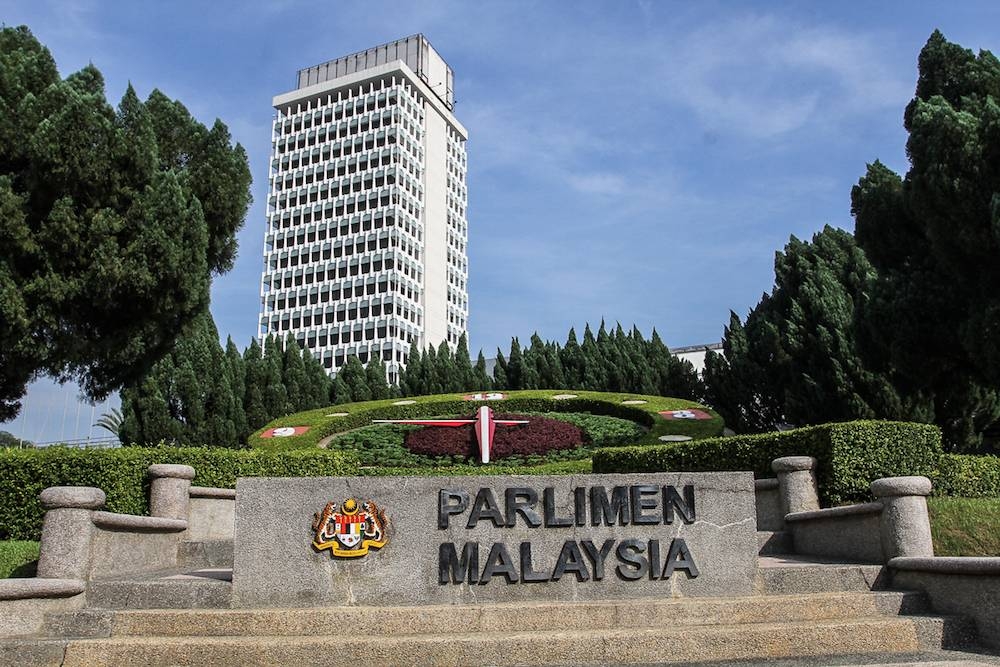SEPTEMBER 21 ― DAP MP Lim Kit Siang argued on Tuesday that the Yang di-Pertuan Agong (the King) would be justified in rejecting the dissolution of Parliament if this prevented Malaysians from being forced to vote in an early 15th general election during a predicted flood season.
“Article 40 (2)(b) of the Constitution confers the Yang di-Pertuan Agong the discretionary power of ‘withholding of consent to a request for the dissolution of Parliament’ and the holding of 15th general election when there is monsoon and massive flood disasters regardless of the costs to property and human lives, will be a valid and proper reason for the Yang di-Pertuan Agong to refuse consent for a dissolution of Parliament,” Lim added.
The Meteorological Department (MetMalaysia) has warned that the public should prepare for floods during the northeast monsoon, which is expected to begin in November with a forecasted average rainfall of around 100mm to 900mm. This could lead to major floods.
Therefore, it is only logical that a general election should not be held during the flood season.
“Will the Yang di-Pertuan Agong for the first time in Malaysian history withhold consent to a request for the dissolution of Parliament if the Prime Minister Datuk Seri Ismail Sabri, is so irresponsible as to request a dissolution of Parliament regardless of the heavy costs to property and lives in a monsoon and flood season?” Lim asked.
It must be recalled though that the King had refused to accede to the request of then prime minister Tan Sri Muhyiddin Yassin for a declaration of a nationwide emergency in October 2020.

A statement by the Comptroller of the Royal Household Datuk Ahmad Fadil Shamsuddin said: “Al-Sultan Abdullah is of the opinion that there is no need right now for His Royal Highness to declare a state of emergency for the country or any other parts of Malaysia.”
The King’s refusal would seem to fly in the face of the Privy Council decision in Teh Cheng Poh v PP (1979) that the King’s functions “are those of a constitutional monarch and ... he does not exercise any of his functions under the Constitution on his own initiative but is required by Article 40(1) to act in accordance with the advice of the Cabinet.”
But among the country’s own constitutional experts, the decision by the King to refuse the advice to proclaim an emergency has a “sound constitutional basis.” The country’s leading constitutional expert Datuk Emeritus Prof. Dr. Shad Saleem Faruqi has said that “in addition to the constitutionally conferred discretionary powers mentioned in Article 40(2), there are probably other instances in which residual, reserve, prerogative and inherent powers of the Yang di-Pertuan Agong may come into play.”
According to Shad, life is larger than the law and no constitution is exhaustive or can anticipate every contingency. The late Sultan Azlan Shah captured this well when His Royal Highness wrote in 1986: “A King is a King, whether he is an absolute or a constitutional monarch... It is a mistake to think that the role of a King is confined to what is laid down by the Constitution. His role far exceeds those constitutional provisions.”
So, if a King is a King and has residual, reserve and inherent powers, where the King has a discretion clearly conferred by the Federal Constitution itself, why the clamour for the prime minister to call for an immediate general election?
Dissolving Parliament so that a general election can be held is not done simply upon request of the prime minister to the King. As rightly highlighted by Lim, Article 40(2) of the Federal Constitution allows the King to act in his discretion in (a) the appointment of a prime minister; (b) the withholding of consent to a request for the dissolution of Parliament; (c) the requisition of a meeting of the Conference of Rulers concerned solely with the privileges, position, honours and dignities of Their Royal Highnesses and any action at such a meeting, and in any other case mentioned in the Federal Constitution.
Let it not be lost that it takes a request from the prime minister to the King and the King to consent to dissolve Parliament. In simple words, it takes two to dissolve Parliament.
* This is the personal opinion of the writer or publication and does not necessarily represent the views of Malay Mail.





















